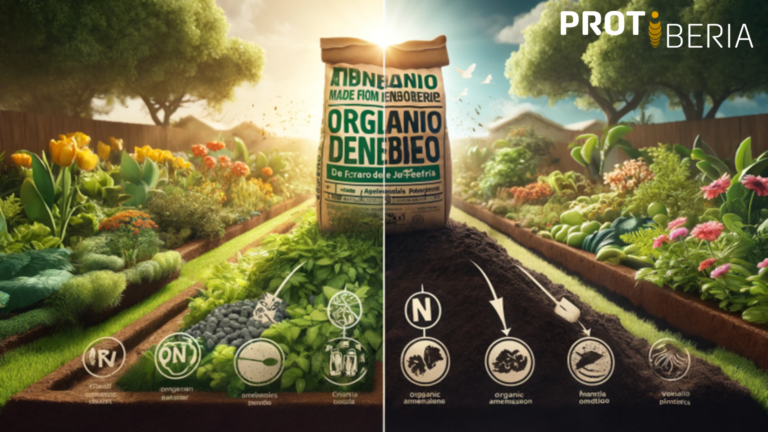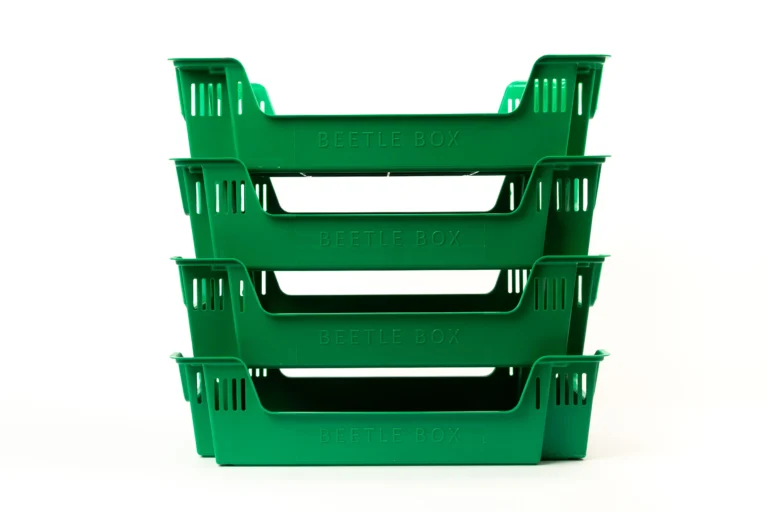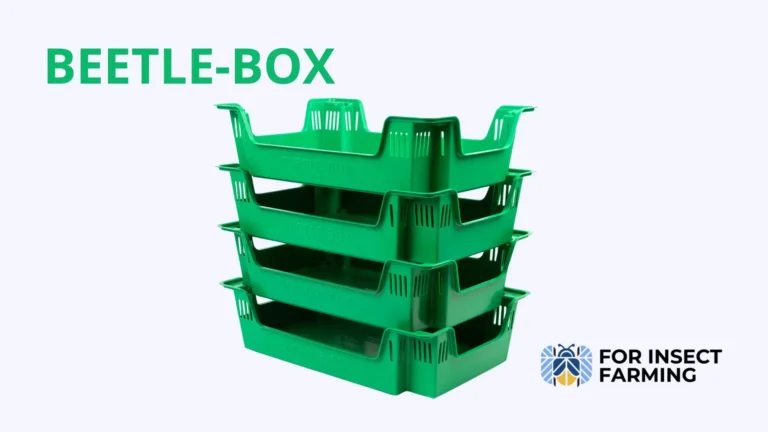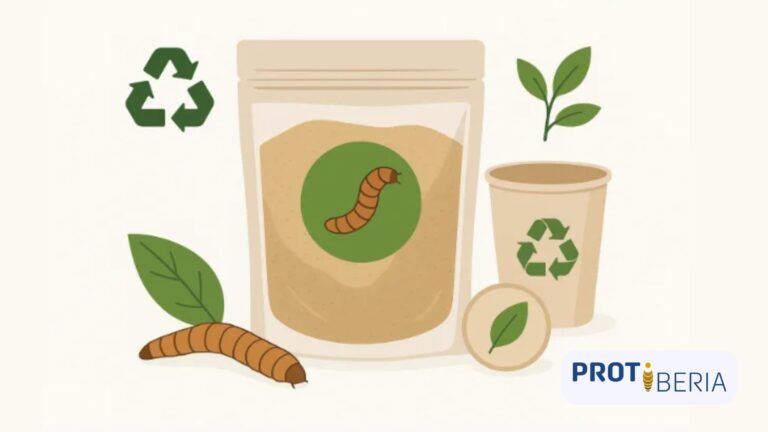| Tenebrio frass is destined to change the way we fertilize fields in the agricultural world, but which is better: use it as fertilizer or as an amendment? |
Imagine that your company produces Tenebrio frass, a valuable manure. Now, you face a crucial decision: should you certify this product as an organic fertilizer or as an organic amendment? Although at first glance, an organic fertilizer may seem to have a superior status due to its ability to provide nutrients to plants, it is essential to consider all the implications before making a decision.
Definitions
Organic Amendment:
Definition: An organic amendment is a biological material that is added to the soil to improve its physical, chemical, and biological properties.
Example: Compost, manure, untreated insect frass.
Organic Fertilizer:
Definition: An organic fertilizer is a biological material that is primarily used to provide nutrients to plants.
Example: Thermally treated compost, composted manure.
Considering that the fundamental difference between an organic fertilizer and an organic amendment based on Tenebrio frass is the fact that the former receives thermal treatment, here are the advantages and disadvantages of such treatment.

Advantages of Thermal Treatment of Tenebrio Frass
1. Pathogen Elimination: Destruction of Bacteria and Fungi: Thermal treatment is effective in eliminating pathogens and unwanted microorganisms, thus reducing the risk of diseases for both plants and humans.
2. Odor Reduction: Studies on composting have shown that thermal treatment can significantly reduce odors by eliminating volatile organic compounds and microorganisms responsible for unpleasant smells.
3. Product Stability: Thermal treatment can increase the stability and shelf life of the frass, preventing premature decomposition and degradation.
4. Improvement in Nutrient Availability: Heat helps break down complex organic compounds, releasing nutrients that are more readily available to plants.
Disadvantages of Thermal Treatment of Tenebrio Frass
1. Loss of Beneficial Microorganisms: Although thermal treatment eliminates pathogens, it also destroys beneficial microorganisms that act as essential biostimulants for soil health and plant growth.
2. Energy Cost: The heating process requires a significant amount of energy, which can increase operating costs and reduce the environmental sustainability of the treatment.
3. Gas Emissions: The heating process can generate greenhouse gas emissions and other pollutants, which may have a negative environmental impact.
4. Nitrogen Volatilization: Heat can cause nitrogen volatilization, especially in the form of ammonia, reducing the nutritional content of the frass.
Final Reflection: Prioritizing Beneficial Microbiota
Although converting frass into an organic fertilizer through thermal treatment offers advantages in terms of safety and stability, the true wealth of frass lies in its beneficial microbiota. These microorganisms not only improve soil health but also act as biostimulants, promoting more vigorous plant growth. By eliminating these microorganisms through thermal treatment, the value of frass as an organic amendment is significantly reduced.
Therefore, while an organic fertilizer may seem more attractive at first glance, maintaining frass as an untreated organic amendment can provide long-term benefits that outweigh the immediate advantages of thermal treatment.

References
Real Decreto 529/2023, de 20 de junio, por el que se modifica el Real Decreto 506/2013, de 28 de junio, sobre productos fertilizantes. https://www.boe.es/eli/es/rd/2023/06/20/529
Chang, R., Li, Y., Chen, Q., Guo, Q., & Jia, J. (2019). Comparing the effects of three in situ methods on nitrogen loss control, temperature dynamics and maturity during composting of agricultural wastes with a stage of temperatures over 70 C. Journal of environmental management, 230, 119-127. https://doi.org/10.1016/j.jenvman.2018.09.076
Ayilara, M. S., Olanrewaju, O. S., Babalola, O. O., & Odeyemi, O. (2020). Waste management through composting: Challenges and potentials. Sustainability, 12(11), 4456. https://doi.org/10.3390/su12114456



